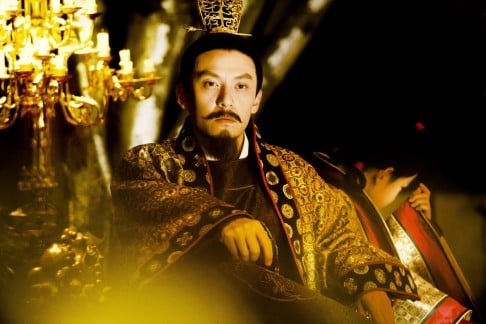
Review | Film review: The Assassin, Hou Hsiao-hsien's masterful wuxia drama
The ninth-century storyupon which rests is a significantly shorter read than this Hou Hsiao-hsien film's production history.

The ninth-century storyupon which rests is a significantly shorter read than this Hou Hsiao-hsien film's production history.
As the Taiwanese auteur's initial foray into the wuxia tradition after a distinguished career of making languorous social-realist dramas, Hou's first feature since the French-set (2007) had spent 25 years in gestation when it premiered, and then picked up a best director prize, at this year's Cannes Film Festival.
The Assassin: the film Hou Hsiao-hsien wanted to make since he was a boy
It's a film so wonderfully crafted it has turned the palpable flaws — in the conventional sense at least — into strengths. bewitched its Cannes critics in May and left them grappling for superlatives to describe the elliptical story, which is delivered with scenes of ravishing beauty, almost non-existent exposition, and some very precise classical Chinese dialogue — much simplified in the English subtitles for easy comprehension, but indigestible at times in its original language.
Loosely based on a short story set in the late Tang Dynasty, the film introduces us to a time when China was being torn apart by militarised garrisons across its territory; Hou has even thrown in a few excessively wordy scenes of court assembly for good measure. In the centre of all this is a stoic Shu Qi, who, as if to highlight the spectrum of moral clarities, plays the titular role of Nie Yinniang as a hovering presence with less than a dozen lines of dialogue throughout.
View from Cannes: The Assassin by Hou Hsiao-hsien is a visual poem
Abducted at age 10 by a princess-turned-nun (Sheu Fang-yi) and turned into an assassin working for the central government, Yinniang is now a formidable martial artist whose heart is nevertheless deemed to "lack resolve" during the act of killing. After she flees a mission out of compassion, this daughter of a senior general is sent back to her birth province of Weibo to assassinate its governor Tian Jian (Chang Chen), who happens to be the cousin and childhood lover she was once set to marry.

But the obscure character relationships — be it Tian's reunion with Yinniang amid his wife's (Zhou Yun) malicious plan for his pregnant concubine (Nikki Hsieh Hsin-ying), or Yinniang's budding friendship with a Japanese workman (Satoshi Tsumabuki) — take a backseat to the dreamlike fable that Hou has spun out with his outstanding crew.
WATCH Hou Hsiao-hsien interview at Cannes
In the assured hands of regular cinematographer Mark Lee Ping-bin, the film is full of transcendent images that will likely inspire awe. Alongside its minimalist treatment of the martial arts elements — with minimal wire-work and no bloodshed — summons a strangely rapturous experience from its ostensibly bewildering narrative, which only adds to the air of mystique. An instant classic.

